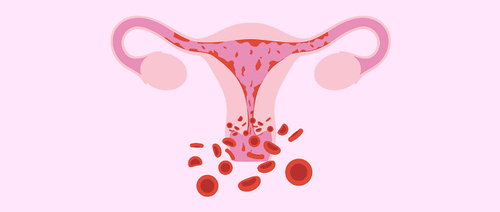This is an automatically translated article.
The article was written by Master, Doctor Mai Vien Phuong - Gastroenterologist - Department of Medical Examination & Internal Medicine - Vinmec Central Park International General Hospital.Abdominal pain during pregnancy is not a strange phenomenon for pregnant women. Abdominal pain during pregnancy can range from a dull ache to an excruciating pain. However, you should not be subjective but need to find out the exact reason.
1. Abdominal pain during pregnancy
Abdominal pain during pregnancy is not unusual, but it can be scary. The pain can be sharp and stabbing, or dull and aching.
Determining if your pain is severe or mild can be challenging. It is important to know what is normal and when to call your doctor.
2. Stomach bloating during pregnancy
Excessive gas in the intestinal tract can cause abdominal pain and cause bowel movements. It can stay in one area or move throughout your abdomen, back, and chest.
According to the Mayo Clinic, women have more intestinal gas during pregnancy due to increased progesterone. Progesterone relaxes the intestinal muscles and prolongs the time it takes for food to pass through the intestines. Food stays in the colon longer, allowing more gas to develop.
As your pregnancy progresses, the expanding uterus puts extra pressure on your organs, which can slow down digestion and facilitate gas build-up.

3. Treatment of abdominal pain caused by flatulence
If abdominal pain is caused by bloating, lifestyle changes are needed. Try eating several small meals throughout the day and drinking plenty of water.
Exercise can also help with digestion. Identify foods that cause gas and avoid them. Fried and greasy foods, as well as beans and cabbage, are common culprits. Avoid all carbonated drinks.
Many women consider abdominal pain during pregnancy to be gas, but there are other benign reasons why the pain occurs:
3.1. Round ligament pain
There are two large round ligaments that run from the uterus through the groin. These ligaments support the uterus. As the uterus stretches to accommodate your growing baby, so do the ligaments.
This can cause sharp or dull pain in the abdomen, hips or groin. Moving position, sneezing, or coughing can cause round ligament pain. This usually happens in the second half of pregnancy.
Treatment of round ligament pain
To reduce or eliminate round ligament pain, practice getting up slowly if you are sitting or lying down. If you feel a sneeze or cough, bend and flex your hips. This can help relieve pressure on the ligaments.
Daily stretching is also an effective method of reducing round ligament pain.
3.2. Constipation
Constipation is a fairly common disease in pregnant women. Hormonal changes, a diet lacking in fluids or fiber, lack of exercise, iron pills or anxiety,... can all lead to constipation. Constipation can cause severe pain. It is often described as cramping or sharp and stabbing pain.
Treat constipation
Try increasing the amount of fiber in your diet. Increasing fluids may also help. Pregnant women should drink at least 8 to 10 cups of water a day. Talk to your doctor before taking a stool softener. Some stool softeners are not recommended during pregnancy.
MORE: Note the use of laxatives to treat constipation in pregnant women
3.3. Braxton-Hicks contractions
These “practice” or “fake” contractions happen when the uterine muscles contract for up to two minutes. Contractions are not labor, they are infrequent and unpredictable. They can cause pain and pressure discomfort, but they are a normal part of pregnancy.
Braxton-Hicks contractions usually occur during the third trimester of pregnancy. Unlike labor contractions, these contractions don't gradually become painful or become more frequent over time.

3.4. HELLP . syndrome
HELLP syndrome is an acronym for its 3 main parts: Hemolysis, high liver enzymes and low platelets. This is a life-threatening complication of pregnancy.
What causes HELLP is unknown, but some women develop the condition after receiving a diagnosis of preeclampsia. According to the Preeclampsia Foundation, of the 5 to 8% of women in the United States who develop preeclampsia, it is estimated that 15% will develop HELLP.
Women who do not have preeclampsia can also develop this syndrome. HELLP is more common in first-time pregnancies. Right lower quadrant abdominal pain is a symptom of HELLP. Other symptoms include:
Headache Fatigue and irritability Nausea and vomiting Blurred vision High blood pressure Edema (swelling) Bleeding If you have abdominal pain accompanied by any of the additional HELLP symptoms, go to the doctor right away. Dangerous complications or even death can occur if HELLP is not treated right away.
3.5. Other reasons for concern
Abdominal pain during pregnancy can also be a sign of other, more serious conditions. These include:
Miscarriage Ectopic pregnancy Placental abruption Preeclampsia These conditions require immediate medical attention.
Conditions not directly related to pregnancy can also cause abdominal pain including:
Kidney stones Urinary tract infections (UTIs) Gallstones Pancreatitis Appendicitis Intestinal obstruction Food allergies or sensitivities stomach ulcers Stomach virus Call your doctor right away if your pain is accompanied by any of the following signs:
Fever or chills Vaginal bleeding or spotting Vaginal discharge Attacks repeated contractions Nausea or vomiting Lightheadedness Pain or burning during or after urinating When considering whether your stomach pain is caused by gas or something more serious, keep all of this information in mind. Gas pain usually goes away on its own in a short time. You often find relief from burping or bloating.
You can learn about what you ate or whether you are in a stressful period. Gastric abdominal pain is not accompanied by fever, vomiting, bleeding, or other serious symptoms.
Gas attacks do not last longer, get stronger, and get closer together over time. It could be premature labor.
Whenever in doubt, call your doctor or come and seek treatment at your fertility center.
Vinmec currently has a maternity package with many maternity packages (12-27-36 weeks) to help monitor the health of mother and baby right from the beginning of pregnancy, early detection and timely intervention of health problems. strong. Maternity package has special services such as: Double Test or Triple Test to screen for fetal malformations; Quantitative angiogenesis factor test to diagnose preeclampsia; thyroid screening test; Rubella test; Testing for parasites transmitted from mother to child seriously affects the baby's brain and physical development after birth.
For detailed information about the maternity package and registration, you can contact the clinics and hospitals of Vinmec health system nationwide.
Please dial HOTLINE for more information or register for an appointment HERE. Download MyVinmec app to make appointments faster and to manage your bookings easily.
Reference article source: HELLP syndrome. (2015), Murry MM. (two thousand and thirteen). Pregnancy week by week: Pregnancy and you blog: Gas in pregnancy: Why it happens, what to do, Pregnancy: Body changes and discomforts: Constipation, Tobah YB. (2017). Pregnancy week by week: Pregnancy and you blog: Is it safe to take stool softeners to treat pregnancy constipation?













